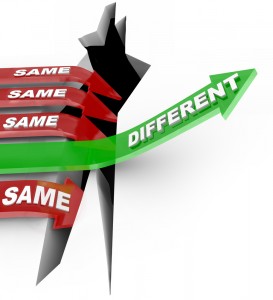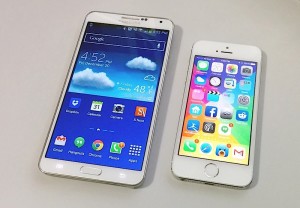As you know, in each industry there are some companies that are very successful that other companies try to catch up with them. On the other hand, there are numerous organizations that spend lots and lots of money to survive but cannot! The main problem is not that some companies have access to more powerful resources, or that they are wealthier that other companies. If that was the case, none of the newly established companies would survive in the cruel world of business. In fact, most of the today’s idols are yesterday’s startup companies with limited resources. Today’s companies have the same access to media, the same talents, the same consultants and so on. So why does it seem that some have something different?

What differentiates a successful company?
By looking at different successful companies, we notice that there is a pattern that works exactly the same way for all of them. The answer is simply called Simon Sinek ‘s “The Golden Circle”. The Golden Circle includes three major questions: Why?, How? and What? Most likely every company knows what exactly it wants to do. For example a software company knows that specific type of applications are their main product. Some of them know that is how they can achieve their “what”s. For example a software security company knows that they need to hire people with specific skill sets, advertise in specific media and implement well-secured applications. But few companies know why they are doing this! Very few companies know “what is their belief?”, “What is their initial motivation?”, “What is the main problem they want to solve?”, or even more generally, “why do we exist?”

The Sinek’s Golden Circle
This process might come from the nature of human beings, which starts with the obvious things and moves towards the fuzzy facts. Successful companies, interestingly, tend to think inside out. They first find WHY everyone should care about them. Sinek has says that Apple is the perfect example. What do you think would have happened if Apple’s approach was as follow: 1 – We make great products like Macbook, iPhone, iPad and so on. 2 – We make the interface of our product smooth, beautiful and user-friendly. 3- Do you want to buy one?! As you can see, there is something lost here. Although customers have different options, and each of which has a well-implemented interface, why should they buy one? They still need to answer this question before deciding to buy any Apple’s product. On the other hand, here is what Apple actually does: 1 – We believe people deserve the best products. We believe our products challenge other product’s quality 2 – We know this, because we make them powerful, beautiful and customizable 3 – Do you want to buy one?! What just happened? This approach is just exactly vice versa. In this case, customers don’t buy Apple’s product, but they buy Apple’s belief. In fact, Apple is similar to many other companies. There are many other companies that are as resourceful as Apple but what happens is that customers care about Apple because they feel it.
The answer to our initial question is simple. Companies need to figure out why customers should buy their products while many others are available in the market. One this is determined, they need to train their customers and teach this to them again and again and again to create loyalty. In fact, the secret is to apparently reveal all the questions that customers have in their minds. If companies can answer these questions, they can make their customers believe what they believe. In other words, successful companies don’t only sell their products but they sell their believes. It always works because these companies think and work exactly the same way that their customers would expect. Another interesting example is Samsung. Although many business analyists believe Samsung has made many wrong decisions, I believe it has made one big correct one. Samsung believed that the size of the screens in handheld smartphones were too small. They knew that a bigger screen offers a lot more to users. The company decided to make smartphones that featured relatively bigger screens, compared to what was offered on the market at that time. The final step was interesting; let customers know why Samsung thinks bigger is better NOT to blindly advertise another piece of technology. In fact, Samsung advertised its belief not its devices.

Samsung phones with big screens
Roger Patterson is one of the successful entrepreneurs in North America and is the founder of Flock and Swarm Mobility Inc. In 2012, I participated in one of his workshops that was held in University of Saskatchewan. One prominent approach he taught us was to how to successfully establish a new company. The approach was simple but amazing; think of yourself as a customer. Why would you buy your product? Why would you care about your product? What would happen if your production doesn’t exist? When you found it, formulize it and then spread it. Customers will buy it from you, because you are not just another seller trying to advertise its products. You are one of them, who tries to bring their believes into the reality.

The key to success
Image References: http://www.gottabemobile.com/

